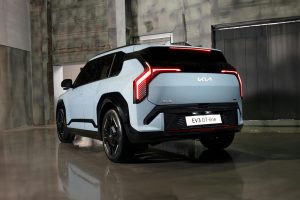Direct-to-Consumer Sales Models Disrupting Traditional Dealerships
In recent years, there has been a significant shift in the way consumers purchase products. With the rise of e-commerce and technology, the traditional dealership model has been challenged by the emergence of direct-to-consumer sales models. These disruptive models have taken the automotive industry by storm, forcing traditional dealerships to adapt and evolve in order to stay competitive. In this article, we will explore how direct-to-consumer sales models are revolutionizing the automotive industry and the impact they are having on traditional dealerships. 
The Rise of Direct-to-Consumer Sales Models
Direct-to-consumer sales models, also known as DTC, are sales strategies in which manufacturers sell their products directly to consumers without the use of intermediaries such as traditional dealerships. This practice removes the need for third-party retailers and allows manufacturers to have a closer relationship with their customers. The success of companies like Tesla and Peloton has put direct-to-consumer sales models in the spotlight, with other industries taking note and following suit.
The Disruption of Traditional Dealerships
For decades, traditional dealerships have been the go-to destination for consumers looking to purchase a vehicle. However, with the rise of direct-to-consumer sales models, traditional dealerships are facing fierce competition. These disruptive models offer a more streamlined and customer-centric approach, luring consumers away from traditional dealerships. In addition, DTC sales models often offer lower prices and a more personalized purchasing experience, further eroding the popularity of traditional dealerships.
Direct-to-Consumer Sales Models in the Automotive Industry
The automotive industry has been one of the biggest adopters of direct-to-consumer sales models. Tesla, the electric car giant, has built its brand on a direct-to-consumer model, with customers being able to purchase vehicles directly from the company’s website. Tesla’s success has inspired other automakers to follow suit, with more and more manufacturers launching their own DTC sales channels. This has forced traditional dealerships to compete with manufacturers for sales, further diminishing their stronghold on the market.
The Advantages of Direct-to-Consumer Sales Models
Direct-to-consumer sales models provide several advantages for both manufacturers and consumers. For manufacturers, it allows them to have a clearer understanding of their customer base and build a stronger brand. By cutting out intermediaries, companies can also increase their profit margins and offer more competitive prices to consumers. For consumers, direct-to-consumer sales models offer convenience, transparency, and a more personalized experience.
The Impact on Traditional Dealerships
The rise of direct-to-consumer sales models has had a significant impact on traditional dealerships. As more manufacturers opt for a DTC approach, traditional dealerships have seen a decline in sales and revenue. Many dealerships are now facing the challenge of diversifying their business model to survive in a changing market. Some have started offering online sales options, while others have invested in more advanced technology to enhance the in-person shopping experience. However, with the popularity and convenience of direct-to-consumer models, traditional dealerships may have to continue to adapt to stay relevant.
The Future of Automotive Sales
The future of automotive sales is undoubtedly heading towards a direct-to-consumer model, with more and more manufacturers adopting this approach. This will not only continue to disrupt traditional dealerships but also change the way consumers purchase vehicles. As technology advances and consumers become more comfortable with purchasing big-ticket items online, we can expect to see the direct-to-consumer model expand into other areas of the automotive industry, such as financing and maintenance services.
Conclusion
Direct-to-consumer sales models have disrupted traditional dealerships and forever changed the way consumers buy cars. As consumers continue to demand convenience and a more tailored experience, we can expect to see a continued shift towards direct-to-consumer sales in the automotive industry. This change presents new challenges for traditional dealerships, but also provides opportunities for growth and evolution. The future of automotive sales is here, and it’s direct-to-consumer.










